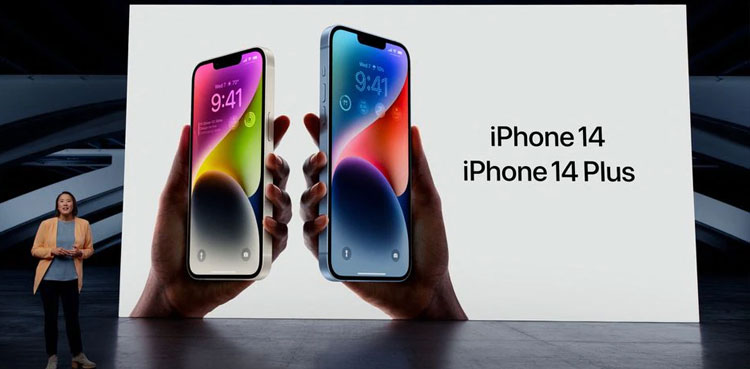
Apple Inc (AAPL.O) introduced a range of new iPhone 14 models capable of sending a call for help via satellite during an emergency, as well as crash-detection ability and an adventure-focused Ultra Watch.
The iPhone 14 models will test Apple’s ability to wring dollars from its relatively affluent customer base, which has kept spending in the face of rising inflation but is not immune to a weakening economy.
The iPhone 14 will start at $799 and the iPhone Plus at $899 and both will be available for pre-order starting Sept. 9.
Apple said it put together a system that will work with emergency responders during emergencies in remote areas. It also said that in some situations, users will be able to use its FindMy app to share their location via satellite when they have no other connectivity.
Globalstar said in a filing that it will be the satellite operator for Apple’s emergency SOS service. Globalstar’s stock fell about 16% on Wednesday before being halted ahead of the announcement of the Apple deal. The stock has gained about 50% year to date.
Other companies are working on similar functions. SpaceX founder Elon Musk said last month it is working with T-Mobile (TMUS.O) to use its Starlink satellites to connect phones directly to the internet.
Apple’s iPhone 14 Plus model will have a larger screen like Apple’s iPhone Pro models but an A15 processor chip like the previous iPhone 13.
The Cupertino, California-based company also showed a trio of new Apple Watches, including a new Watch Ultra model aimed at extreme sports and diving.
The Ultra has a bigger battery to last through events like triathlons and better waterproofing and temperature resistance to operate in outdoor environments, as well as better GPS tracking for sports.
The new Watches include an upgraded budget model called the SE and a Series 8 Watch with crash detection and low-power mode for 36 hours of battery life.
The Series 8 with cellular will start at $499 and the SE will start at $299 with cellular. The Ultra, which includes cellular in its base model, will start at $799 and be available Sept. 23.
Apple said the new Series 8 watch has a temperature sensor that will work in conjunction with its previously released cycle tracking app to retroactively detect ovulation. The company emphasized the privacy approach of its cycle tracking. Privacy and reproductive health data has become a focus for tech companies in the wake of a U.S. Supreme Court decision that ended a constitutional right to abortion in the United States.
Apple said it does not have the key to decrypt health data such as cycle tracking.
But while accessories like the Apple Watch have driven incremental sales from Apple’s existing user base, the iPhone remains the bedrock of its business with 52.4% of sales in its most recent fiscal year.
Apple’s stock was up 0.6% more than an hour into the presentation, in line with the start of the event and lagging the S&P 500’s gain of 1.5% for the session.
Some analysts believe Apple might give a preview of a mixed-reality headset on Wednesday. The device is expected to have cameras that pass-through view of the outside world to the wearer while overlaying digital objects on the physical world. Analysts do not expect the device to go on sale until next year at the earliest.
An early preview would be rare for Apple, which keeps its product plans secret until just before devices hit the market. A rival headset called Project Cambria is in the works from Meta Platforms Inc (META.O), which is spending billions of dollars on the project.
Also Read: Apple’s new iPhones, watches are coming at a tough time
But in order to have compelling apps for a new headset, Apple might need to give developers time to become familiar with it. “Developing for a new and radically different type of platform is going to take people a lot longer,” O’Donnell said.
from ARY NEWS https://ift.tt/hwtrEj0



0 Comments